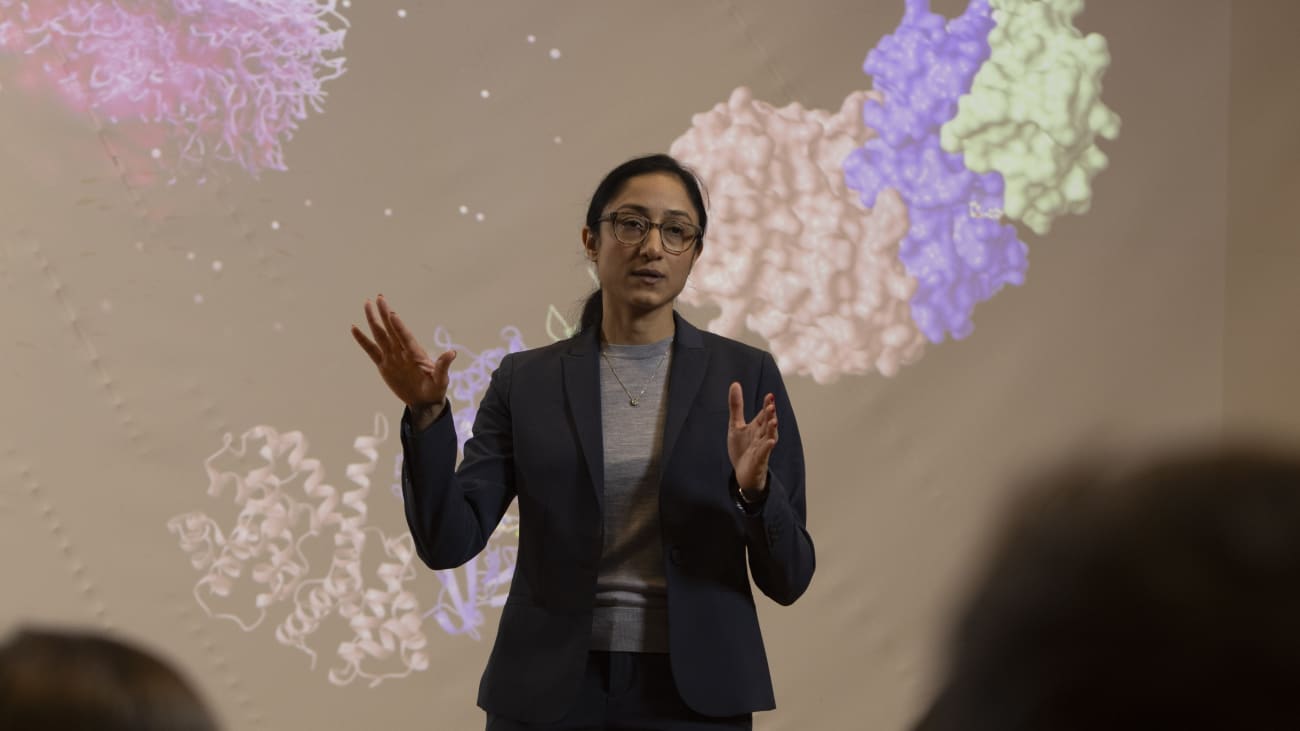

The first study to prospectively examine the impact of co-mutation biomarkers on sotorasib, a novel targeted therapy, for advanced KRAS G12C mutated NSCLC
Until recently, the prognosis for patients with metastatic non-small cell lung cancer (NSCLC) was not optimistic. “However, breakthroughs in immunotherapy and targeted therapy mean we now can offer patients over 15 different therapeutic strategies in the metastatic setting based on molecular and protein biomarkers,” explains Sukhmani K. Padda, MD, Professor, Department of Hematology/Oncology, Fox Chase Cancer Center, and Vice Chair of Medical Oncology, Fox Chase Cancer Center at Temple University Hospital.
Padda has a national reputation in lung cancer precision oncology and was the PI for an ASCO 2025-presented study—the first to prospectively examine specific mutations in tumor suppressor genes of KRAS G12C mutant NSCLC, utilizing rigorous biomarker testing to investigate their impact on the clinical activity of sotorasib, an FDA-targeted therapy for previously treated stage IV KRAS G12C mutant NSCLC.
Essentially, a Biomarker Question
Padda says, “In the Lung-MAP S1900E study, we prospectively asked if/how these other mutations in tumor suppressor genes impact the effectiveness of sotorasib in NSCLC. NSCLC is the most common type of lung cancer. They comprise 85 percent of all US lung cancer cases and 13 to 14 percent of these have a KRAS G12C mutation, impacting a large number of patients. The study results showed that sotorasib had lower efficacy in the cohort with STK11 co-mutations, and this was not observed for the cohorts with TP53 co-mutations or other/no co-mutations, paving the way for ever-more specific studies.
A Study Difference: Precision Genomic Accrual with Broad Reach
“Using Lung-MAP,* we were able to extend the trial’s reach, both within our community of North Philadelphia and as well throughout the region and country,” says Padda. Lung-MAP is a national umbrella clinical trial protocol with members having broad reach, including NCI clinical trial cooperative groups that encompass academic cancer centers and community hospitals and practices. It’s a platform that offers precision clinical trials based on existing and evolving biomarkers for patients with lung cancer. When a trial arises that’s a good genomic fit, physicians and their patients across the country can easily access the precision medicine trial and investigational treatments to fight their cancer—not relying on where they live, but rather on molecular disease biomarkers.
Improving access to investigative trials for underserved communities is foundational to the Fox Chase – Temple mission. Martin J. Edelman, MD, Chair and Professor, Department of Hematology/Oncology, Fox Chase Cancer Center and Chair, Department of Medical Oncology, Lewis Katz School of Medicine at Temple University, co-authored a large study to examine whether master protocols such as Lung-MAP provided improved access to clinical trials for older patients and socioeconomically vulnerable individuals. The study concluded that indeed, access for these patients may be improved using Lung-MAP, as compared with recruitment for conventional trials. As part of the Fox Chase – Temple mission to improve clinical trial access, Padda—working in collaboration with Edelman and a multifaceted team from Fox Chase Cancer Center/Temple Health and the Temple Lewis Katz School of Medicine—has led efforts to expand clinical trial opportunities for patients with cancer at Temple University Hospital’s Broad Street campus in North Philadelphia, an underserved and diverse community. A central focus has been building essential clinical trial infrastructure and processes while strategically developing a trial portfolio—such as the Lung-MAP studies—that aligns with the needs of the patient population.
Lung-MAP recruitment is a transformative path for clinical trial recruitment and a platform with a Fox Chase history since Lung-MAP’s Immediate Past Chair was Hossein Borghaei, DO, Chief, Fox Chase Division of Thoracic Medical Oncology.
*Within the National Cancer Institute’s National Clinical Trials Network
The Power of “Reflex Ordering”
Another way in which clinical trial enrollment at Fox Chase – Temple Health is expedited is through a seamless protocol with our pathologists: with every non-small cell lung cancer diagnosis, the pathologist “reflex orders” biomarker testing, sequencing critical molecules, the DNA, RNA, and also analyzing proteins. Genomically based information is a fast track for doctors and their patients to life-enhancing treatments and clinical trials, impacting almost every stage of disease from the early stage on.
Through Lung-MAP and “reflex” biomarker testing, studies like S1900E open the door to enrollment for patients historically underrepresented in clinical trials. From a scientific perspective, the gold standard of care is that scientists must feel confident when that drug goes to approval that it will work and be tolerated in a broad scope of patients.
Padda concludes, “Some of the next big questions in NSCLC are figuring out how to target the other 60 percent of non-G12C KRAS mutations. We have lots of work ahead and much excitement knowing we are digging deeper into precise oncologic targets in order to eradicate certain cancers.”
ECOG-ACRIN Led Lung-MAP Sub-study:


